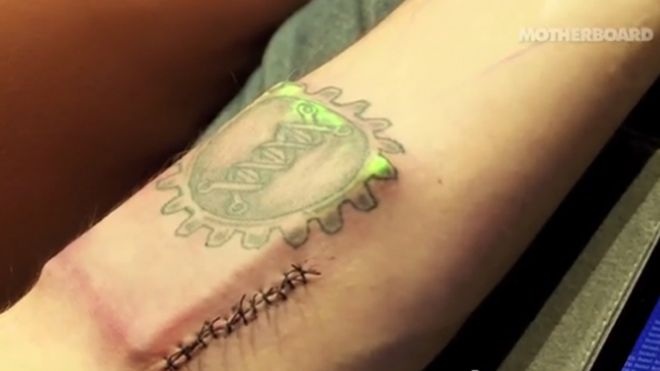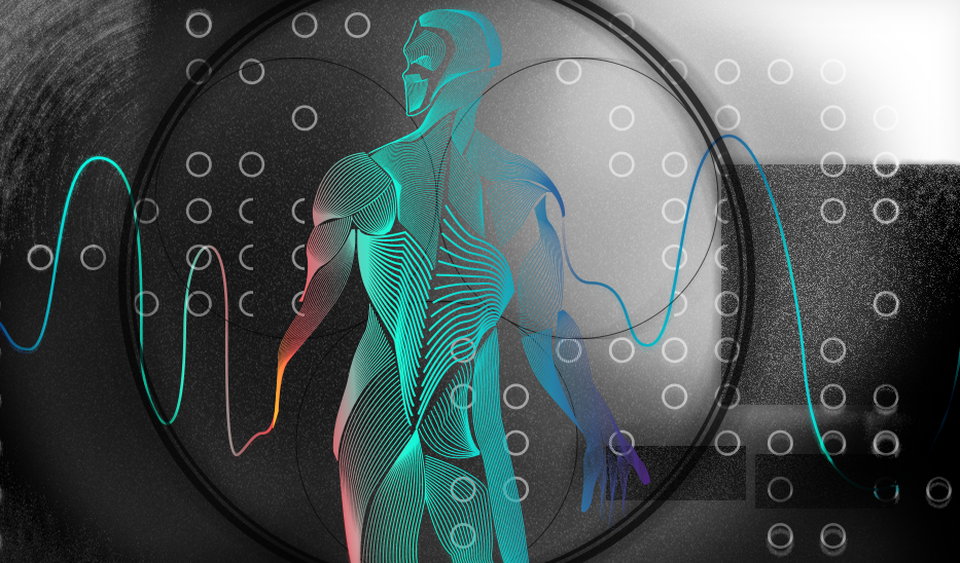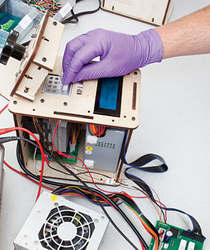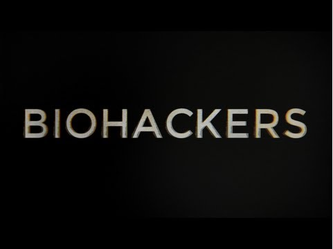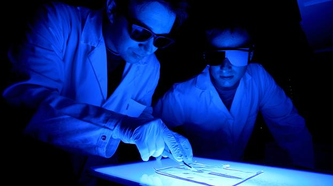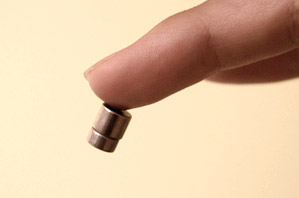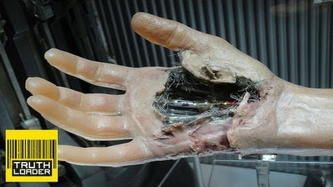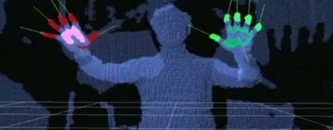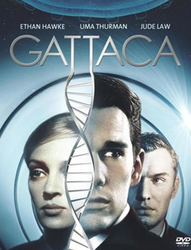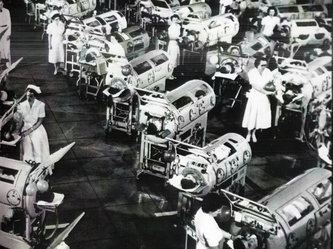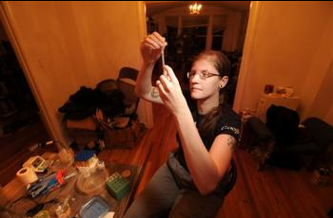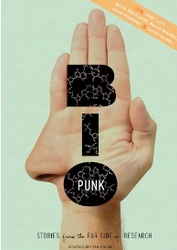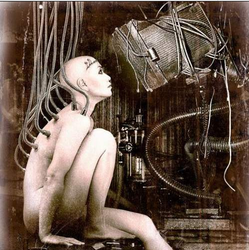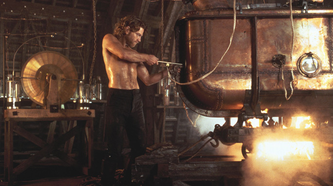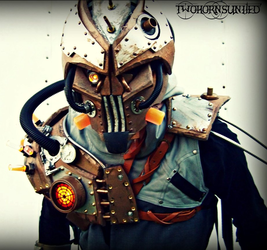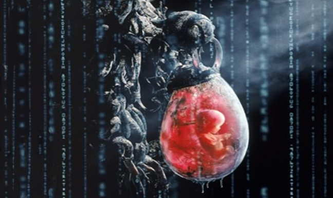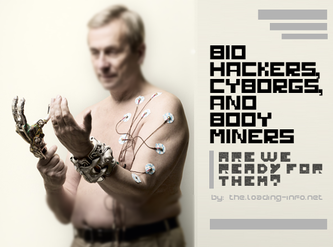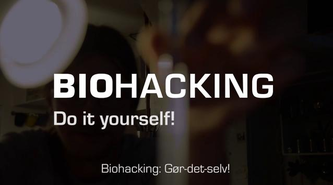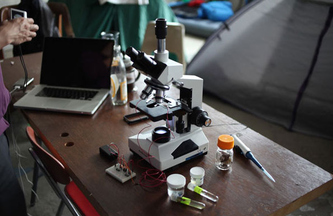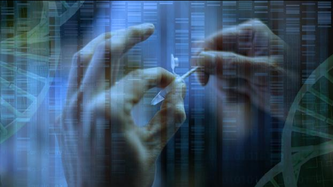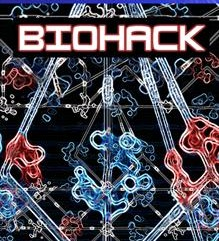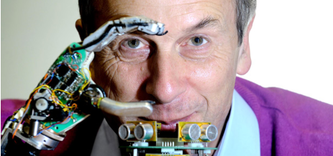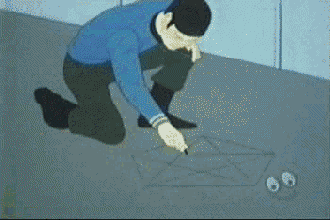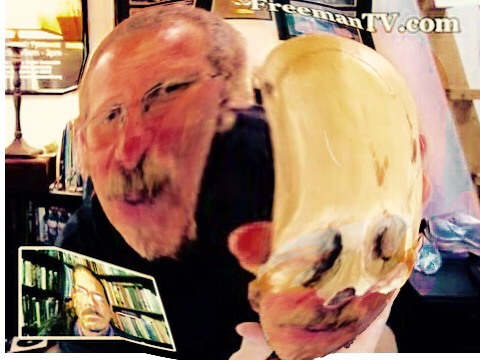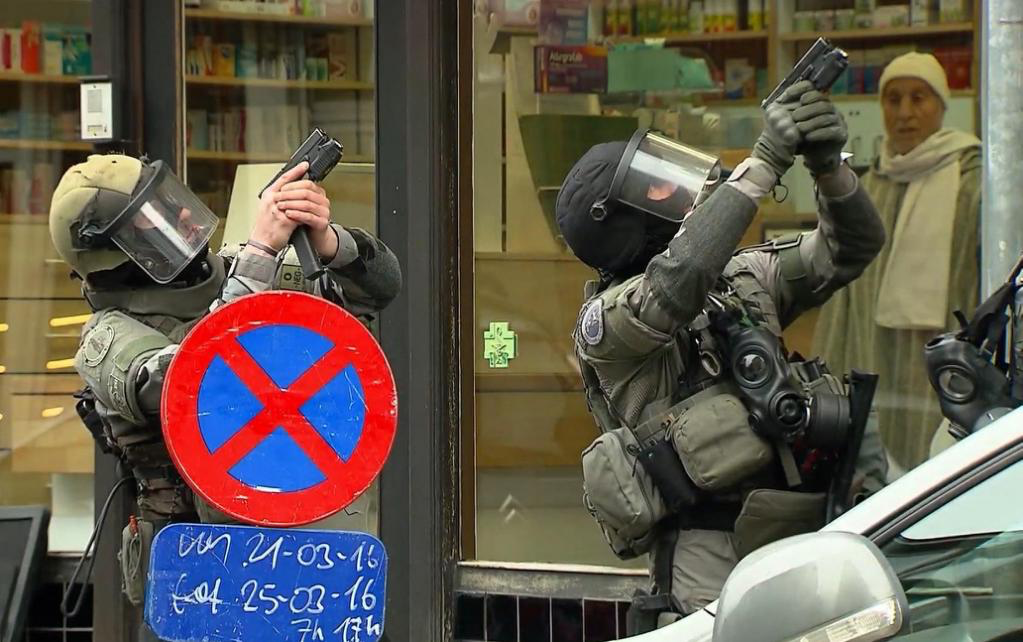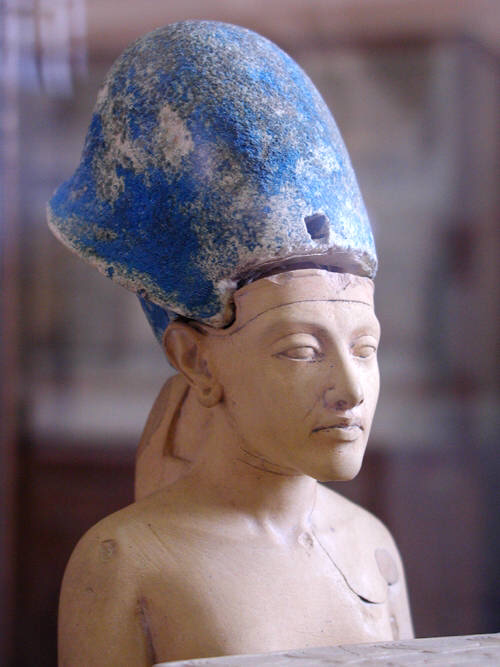
'Biohacker' implants chip in arm
|
Kids, don't try this at home: A self-described "biohacker" had a big electronic chip almost as large as a deck of cards inserted beneath the skin of his arm. Without a doctor's help. And without anesthetics.
Tim Cannon is a software developer from Pittsburgh and one of the developers at Grindhouse Wetware, a firm dedicated to "augmenting humanity using safe, affordable, open source technology," according to the group's website. As they explain it, "Computers are hardware. Apps are software. Humans are wetware." |
Magnet-implanting DIY biohackers pave the way for mainstream adoption
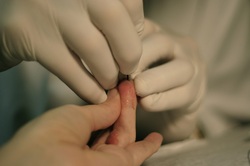
When Lepht Anonym hit the world stage in 2011 to describe how she cut open her flesh with vodka-sterilised vegetable peelers to stick bits of metal under her skin, there were probably a fair few intakes of breath. There was also a huge sigh of relief from a rapidly growing minority. Her words sowed a seed in the minds of people
who had long-harboured thoughts of being superhuman, of fulfilling a childhood fantasy and becoming a cyborg. That seed said it was ok to experiment and suggested, instead of waiting for the impossible to happen, why not pick up your (sterilised) tools and make something possible happen today.
who had long-harboured thoughts of being superhuman, of fulfilling a childhood fantasy and becoming a cyborg. That seed said it was ok to experiment and suggested, instead of waiting for the impossible to happen, why not pick up your (sterilised) tools and make something possible happen today.
DIY enhancement: morphological freedom or self-harm?
by Anders Sandberg
Lepht Anonym is a DIY biohacker, extending her body and senses through implantation of home-made
cybernetics in her own kitchen. (YouTube video of her lecture) Most of her work is about extending the sense of touch, using implanted magnets to acquire “magnetic vision” and (hopefully) an implanted version of the northpaw magnetic sense system besides the “usual stuff” of RFID implants.
She is critical of regular transhumanism, which she thinks is all talk. This is the real deal: “You just have to get deep enough to open a hole and put something in,” she says. “It’s that simple.” Of course, she has ended up in the hospital a few times. A new kind of self-harm all right-thinking people ought to save her from, or a valid form of self-expression that should be protected?
READ MORE @ http://blog.practicalethics.ox.ac.uk/2011/01/diy-enhancement-morphological-freedom-or-self-harm/
Choose Your Own Sixth Sense

Imagine for a moment that you could choose any superpower you wanted. If you’re the demonstrative sort, you might be tempted by something dramatic, such as Hulk-like strength or the ability to fly. Or perhaps you’d prefer something a little more discreet, like a self-healing body or the power to read minds.
But if you’re a certain type of pragmatist, you’ll dismiss all of the above as a mere parlor game. Why waste time dreaming about things that are impossible (for now, at least) when you can have a more modest superpower today, at a reasonable
price?
READ MORE @ http://www.slate.com/articles/technology/superman/2013/03/cyborgs_grinders_and_body_hackers_diy_tools_for_adding_sensory_perceptions.html
But if you’re a certain type of pragmatist, you’ll dismiss all of the above as a mere parlor game. Why waste time dreaming about things that are impossible (for now, at least) when you can have a more modest superpower today, at a reasonable
price?
READ MORE @ http://www.slate.com/articles/technology/superman/2013/03/cyborgs_grinders_and_body_hackers_diy_tools_for_adding_sensory_perceptions.html

Cyborg America: inside the strange new world of basement body hackers
Part.01
With the advent of the smartphone, many Americans have grown used to the idea of having a computer on their person at all times. Wearable technologies like Google’s Project Glass are narrowing the boundary between us and our devices even further by attaching a computer to a person’s face and integrating the software directly into a user’s field of vision. The paradigm shift is reflected in the names of our dominant operating systems. Gone are Microsoft’s Windows into the digital world, replaced by a union of man and machine: the iPhone or Android.......
History.01
In one sense, Mary Shelley’s Frankenstein, part man, part machine, animated by electricity and with superhuman abilities, might be the first dark, early vision of what humans' bodies would become when modern science was brought to bear. A more utopian version was put forward in 1960, a year before man first travelled into space, by the scientist and inventor Manfred Clynes. Clynes was considering the problem of how mankind would survive in our
new lives as outer space dwellers, and concluded that only by augmenting our physiology with drugs and machines could we thrive in extraterrestrial environs. It was Clynes and his co-author Nathan Kline, writing on this subject, who coined the term cyborg.....
Read more @ http://www.theverge.com/2012/8/8/3177438/cyborg-america-biohackers-grinders-body-hackers
With the advent of the smartphone, many Americans have grown used to the idea of having a computer on their person at all times. Wearable technologies like Google’s Project Glass are narrowing the boundary between us and our devices even further by attaching a computer to a person’s face and integrating the software directly into a user’s field of vision. The paradigm shift is reflected in the names of our dominant operating systems. Gone are Microsoft’s Windows into the digital world, replaced by a union of man and machine: the iPhone or Android.......
History.01
In one sense, Mary Shelley’s Frankenstein, part man, part machine, animated by electricity and with superhuman abilities, might be the first dark, early vision of what humans' bodies would become when modern science was brought to bear. A more utopian version was put forward in 1960, a year before man first travelled into space, by the scientist and inventor Manfred Clynes. Clynes was considering the problem of how mankind would survive in our
new lives as outer space dwellers, and concluded that only by augmenting our physiology with drugs and machines could we thrive in extraterrestrial environs. It was Clynes and his co-author Nathan Kline, writing on this subject, who coined the term cyborg.....
Read more @ http://www.theverge.com/2012/8/8/3177438/cyborg-america-biohackers-grinders-body-hackers

In Attics and Closets, 'Biohackers' Discover Their Inner Frankenstein
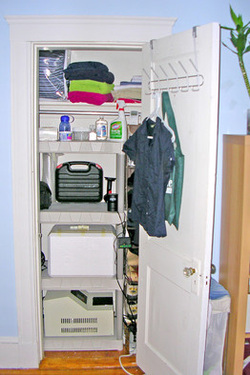
In Massachusetts, a young woman makes genetically modified E. coli in a closet she converted into a home lab. A part-time DJ in Berkeley, Calif., works in his attic to cultivate viruses extracted from sewage. In Seattle, a grad-school dropout wants to breed algae in a personal biology lab.
These hobbyists represent a growing strain of geekdom known as biohacking, in which do-it-yourselfers tinker with the building blocks of life in the comfort of their own homes. Some of them buy DNA online, then fiddle with it in hopes of curing diseases or finding new biofuels.
But are biohackers a threat to national security?
That was the question lurking behind a phone call that Katherine Aull got earlier this year. Ms. Aull, 23 years old, is designing a customized E. coli in the closet of her Cambridge, Mass., apartment, hoping to help with cancer research.
READ MORE @ http://online.wsj.com/article/SB124207326903607931.html
These hobbyists represent a growing strain of geekdom known as biohacking, in which do-it-yourselfers tinker with the building blocks of life in the comfort of their own homes. Some of them buy DNA online, then fiddle with it in hopes of curing diseases or finding new biofuels.
But are biohackers a threat to national security?
That was the question lurking behind a phone call that Katherine Aull got earlier this year. Ms. Aull, 23 years old, is designing a customized E. coli in the closet of her Cambridge, Mass., apartment, hoping to help with cancer research.
READ MORE @ http://online.wsj.com/article/SB124207326903607931.html
Biohacking is the practice of engaging biology with the hacker ethic. Biohacking encompasses a wide spectrum of practices and movements ranging from Grinders who design and install DIY body-enhancements such as magnetic implants to DIY biologists who conduct at-home gene sequencing. Biohacking emerged in a growing trend of non-institutional science and technology development. Many biohacking activists, or biohackers, identify with the biopunk movement as well as transhumanism and techno-progressivism. "Biohacking" can also refer to managing one's own biology using a combination of medical, nutritional and electronic techniques. This may include the use of nootropics and/or cybernetic devices for recording biometric data.
Biopunk (a portmanteau synthesizing "biotechnology" and "punk") is a technoprogressive movement advocating open access to genetic information. Biopunk hobbyists or biohackers experiment with DNA and other aspects of genetics. The related biopunk science fiction genre focuses on biotechnology and subversives.
